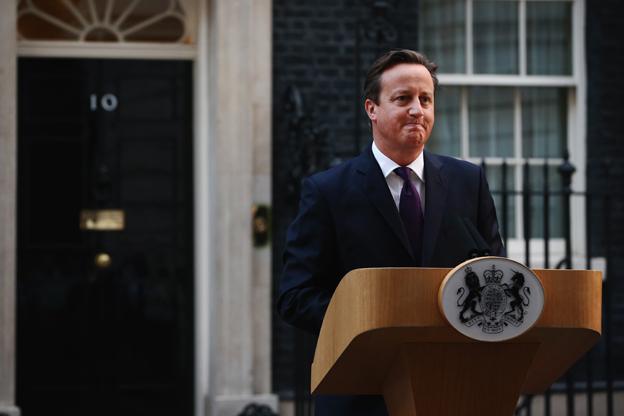UK - what next?
- Published
- comments
Mark Easton starts his road trip by looking at the prospect of English devolution
Moments after the result of the Scottish referendum, David Cameron stepped in front of the cameras and microphones gathered in Downing Street to announce a "new and fair" constitutional settlement for the whole of the United Kingdom.
The prime minister promised that "just as Scotland will vote separately in the Scottish Parliament on their issues of tax, spending and welfare, so too England, as well as Wales and Northern Ireland, should be able to vote on these issues".
It would be, he said, "a decisive answer" to the so-called West Lothian question - the paradox that English MPs cannot vote on matters affecting UK nations with their own assemblies, while non-English MPs can vote on matters only affecting England.
The idea of "English votes for English laws" seems logical enough, but the implications are profound for our governance, our democracy and our country.
If each of the four nations controls its own tax, spending and welfare, the United Kingdom parliament becomes a shadow of its former self. The UK prime minister might end up in control of little more than foreign affairs, defence and the currency.
With English MPs alone voting on English domestic policy, those members become, in effect, an English parliament operating within the Palace of Westminster. And that could be a highly unstable construction.
What if the prime minister wasn't English - like David Lloyd George or Gordon Brown? The leader would not be allowed to vote in the House of Commons on matters affecting more than 80% of the population.
And what if the English group was at odds with the views of the UK cabinet? One consequence of "English votes for English laws" (EVEL) is that MPs from England would be more powerful than others, creating two classes of Westminster MP.
EVEL has been official Conservative policy for some years and, when David Cameron became prime minister, a report was commissioned into how it might be introduced. The McKay Commission, however, said "MPs from outside England should not be prevented from voting on matters before the House of Commons" because it "could provoke deadlock between the UK Government and the majority of MPs in England".

David Cameron reacting to the Scottish referendum result, 19 September
Nevertheless, the PM is still demanding it happen - not least, of course, because of the politics involved. Of the current non-English MPs, just nine are Tories, 14 are Liberal Democrats, but 67 are Labour.
Were it to happen, the United Kingdom would become a sort of federal state - four nations with a high degree of self-government under a UK umbrella. This, though, also comes with a problem. England would be much larger than the other members, potentially creating profound internal tensions.
Constitutional experts suggest the solution would be to devolve power to smaller areas of England, an approach that also addresses the highly centralised nature of Westminster politics. David Cameron has agreed that "all options" for devolution are possible.
So what are the options? One suggestion is for the counties of England to provide the template for devolved power. In Cornwall and in Yorkshire, for example, political parties are pushing for the historic county borders to become the outline for new devolved assemblies.
Another idea is for so-called city regions to become the power centres in a devolved England. The Treasury supports the idea of metropolitan centres in the north of England linking up to become a "Northern powerhouse" as a rival to London.
A number of proposals for city regions have been published in recent months, based on the area of influence of different metropolitan centres. However, this urban vision has seen some rural voices raised in alarm.
A third model for English devolution is based on the nine regions identified by the previous government, part of former Deputy Prime Minister John Prescott's failed attempt to devolve power. Could this idea ever win public support?
British history is littered with disagreement about lines on maps and where power should lie. And that may prove the biggest obstacle to finding "a new and fair settlement" for the United Kingdom.

Mark Easton will be travelling around the UK all this week to look at the future of the British constitution, and examine the devolution/constitution debate. For more coverage of the issues, look at BBC News Online's UK: What next? page or join in the debate on Twitter using the hashtag #eastonjourney.